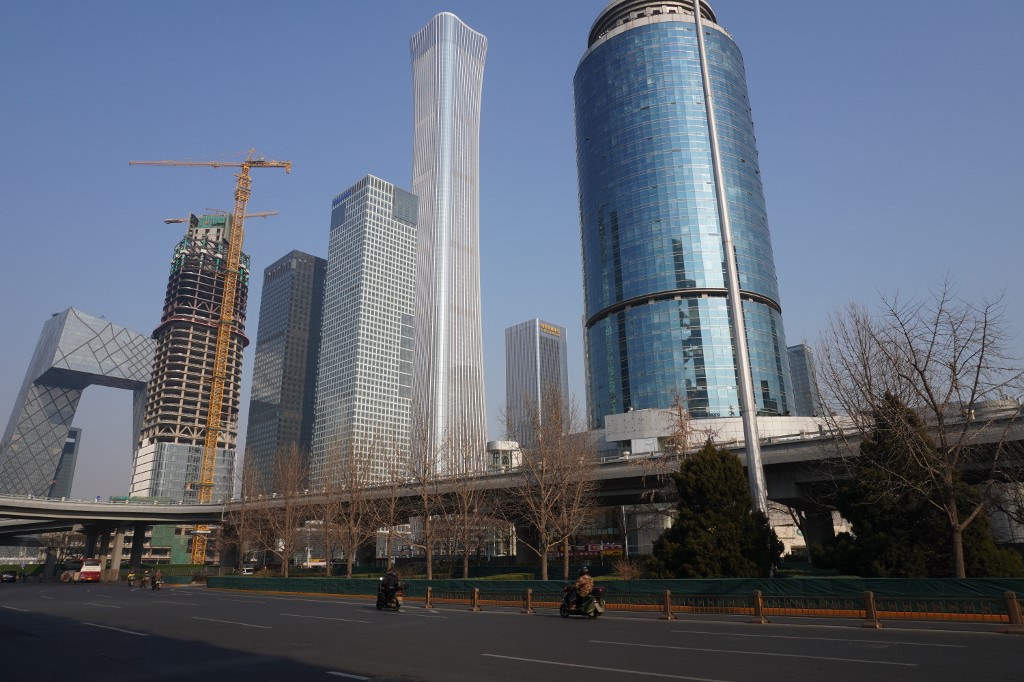(ATF) Chinese investment trusts increased their holdings of bonds in the first quarter at the expense of equities and real estate as the government sought to shore up the coronavirus-hit economy.
Funds also sank their money into riskier assets in the hunt for better returns during the coronavirus downturn, prompting scrutiny from regulators.
Funds had invested 471 billion yuan in stocks by the end of March, accounting for 2.66% of the total 21.33 trillion yuan managed by the institutions, according the China Trustee Association’s (CTA) Q1 analysis of the industry. That represented a decrease of 0.15%. Bonds, meanwhile, received 1.2tn yuan of inflows, accounting for 6.92% of the total invested assets, an increase of 0.04%. Trusts invested 246bn yuan in other funds, up 0.16%.
The small, but significant, rise in bond investments came at a time when the government ramping up the sale of debt to fund recovery and reconstruction efforts in a virus-damaged economy.
Total assets managed by trusts declined in the three months through March, however, continuing a slide that began in 2018. Industrial and commercial enterprises are still the largest category of trust funds, followed by real estate companies, financial institutions and securities investment markets.
Increased research
Influenced by the state’s strong encouragement to develop direct financing and capital markets, the trust industry has increased its research and investment in capital markets to accelerate transformation and innovation.
CTIA analyst Jian Yongjun told the Youth Daily that the increase in trust bond investments illustrates that the industry continues to consolidate its core competitiveness, continues to exert strength in the field of bond- and major asset-allocation, and actively develops the capital market business.
“Deepening reforms of Chia’s capital markets is accelerating, and the future development space is very broad,” Jian said. “Trust companies must actively explore capital market business, give full play to their advantages in the field of fixed income, implement the concept of asset allocation in large categories, accelerate the construction of investment research systems, and enhance active management capabilities.”
Single-fund trusts managed 7.68tn yuan, accounting for 36% of the total. That’s 1.11 percentage points lower than at the end 2019.
Collective fund trusts managed 10tn yuan, or 47% of all invested money, an increase of 1.07 percentage points; managed property trusts managed 3.63tn yuan, or 17.01% of the total unchanged since 2019.
Policy tool
Trusts have become a tool of state investment policy. The report shows that in the first quarter of 2020, the trust industry took measures in accordance with the requirements of China’s “six stability” and “six guarantees” political guidelines issued by the government.
The six stabilities are namely, stability in employment, finance, foreign trade, foreign investment, domestic investment, and market expectations. The guideline was issued in the wake of the coronavirus outbreak. In the same way the six guarantees are intended to create jobs, protect key market players, basic livelihoods, food and energy security, supply chains and “grassroots” movement.
Under these guidelines trusts are expected to steadily increase capital investment in the real economy and smaller enterprises. They must also focus on guiding funds into industrial and commercial enterprises and foundations.
Trusts are expected to support the implementation of major national strategies and the resumption of production and production of enterprises, and improve the efficiency of financial services.
Since the second quarter of 2012, industrial and commercial enterprises have always maintained the largest allocation of trust funds. At the end of the first quarter this year, trust funds invested in industrial and commercial enterprises totalled 5.5tn yuan, a slight decrease of 5.2bn yuan from the end of the 2019.
Housing refocus
The trust industry will continue to implement the Communist Party Central Committee’s “housing, housing, and housing” policy guidance, and continue to reduce its dependence on real estate trusts, the report added.
The scale and proportion of investments in real estate shrunk to 2.58tn yuan, a decrease of 125bn yuan from the end of 2019, and 227bn yuan lower year on year, a 4.62% and 8.10% decline, respectively.
Jian said the decline in real estate trusts reflects how the trust industry has been affected by the epidemic and also is a result of the difficulties in due diligence, which has affected business development. However, it also shows that the industry is implementing the requirements of the Communist Party Central Committee and the China Banking and Insurance Regulatory Commission.
Meanwhile, Chinese trust funds’ assets deemed to carry a degree of risk have more than doubled in the past year to 643.1bn yuan, Yicai Global reported.
The sector was invested in 1,626 risk projects in the first quarter, a jump of almost 62% from the same period last year and an increase of 5.1% from the previous quarter, the CTA said.
The pandemic brought increased risks to the trust fund sector in the period and regulators stepped up their risk investigation efforts, said Jian. However, the scale of risk is expected to stabilise this year, which means the overall hazard to the sector can be controlled, he added.
The trust industry’s financial indicators are expected to come under greater pressure in the third and fourth quarters, a member of a Beijing-based trust company told Yicai Global. It may be difficult for some projects to recover their investment, he added.
























